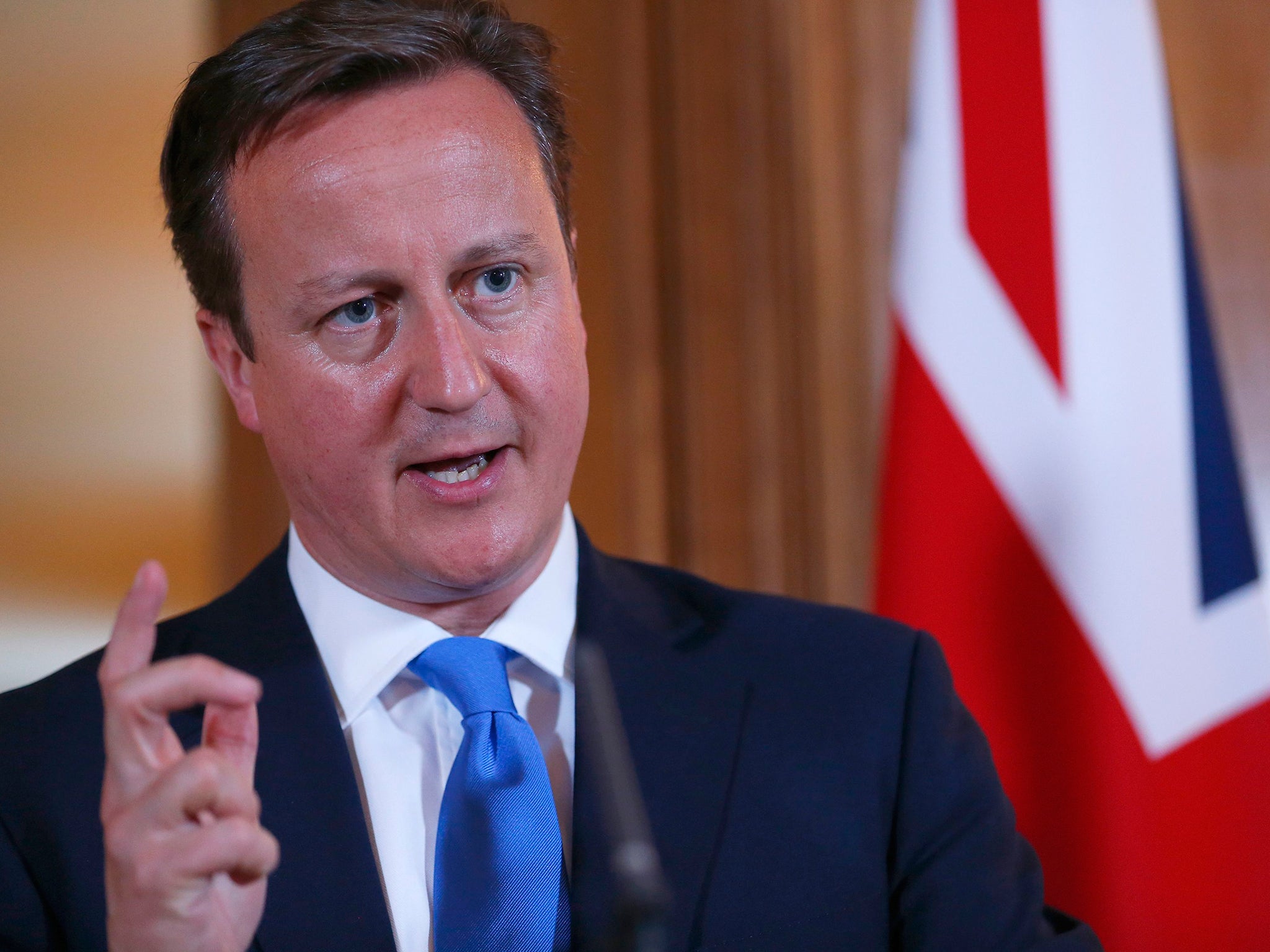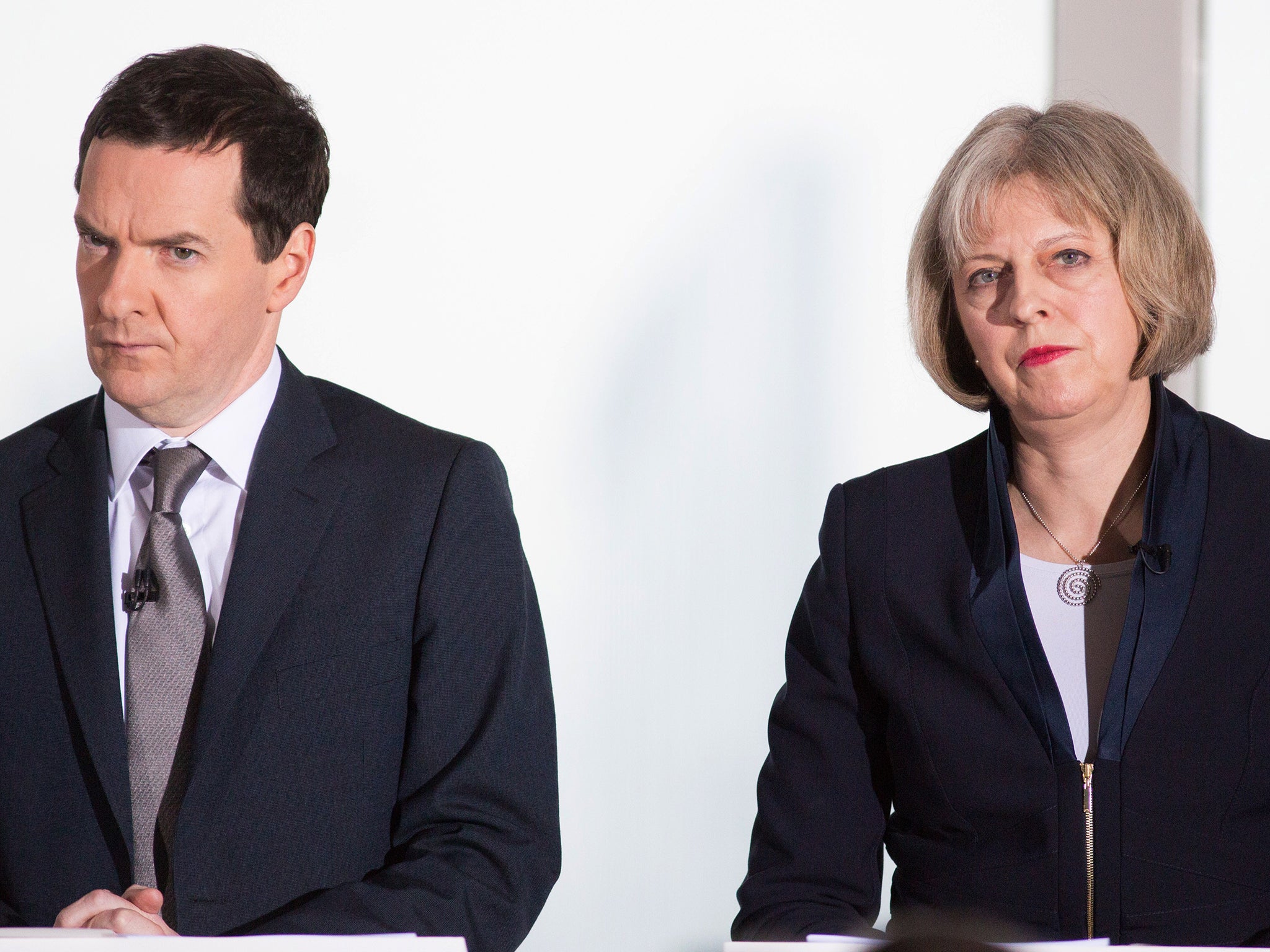David Cameron rules out third term as PM and reveals favourites for next Tory leader
Labour called the announcement 'presumptuous and arrogant'

Your support helps us to tell the story
From reproductive rights to climate change to Big Tech, The Independent is on the ground when the story is developing. Whether it's investigating the financials of Elon Musk's pro-Trump PAC or producing our latest documentary, 'The A Word', which shines a light on the American women fighting for reproductive rights, we know how important it is to parse out the facts from the messaging.
At such a critical moment in US history, we need reporters on the ground. Your donation allows us to keep sending journalists to speak to both sides of the story.
The Independent is trusted by Americans across the entire political spectrum. And unlike many other quality news outlets, we choose not to lock Americans out of our reporting and analysis with paywalls. We believe quality journalism should be available to everyone, paid for by those who can afford it.
Your support makes all the difference.David Cameron has said he would not serve a third term as prime minister if the Conservatives remain in power after the May general election.
In a BBC interview on Monday night, Mr Cameron said: “I’ve said I’ll stand for a full second term, but I think after that it will be time for new leadership. Terms are like Shredded Wheat – two are wonderful but three might just be too many.”
There has been growing speculation among Conservative MPs that Mr Cameron might quit after the in/out EU referendum he has promised in 2017, but the public statement of his intention not to serve a third term surprised Westminster.
The comments appeared intended to dispel any impression that he would go “on and on” as prime minister. But they risk firing an early starting gun on the race to succeed him – and may make it difficult for Mr Cameron to retain his personal authority in the latter stages of the next parliament, if the Tories are returned to power on 7 May.
Mr Cameron said he felt his job was “half done” with the economy “turned round” and that he wanted to “finish the job” of education and welfare reform. But he added: “There definitely comes a time where a fresh pair of eyes and fresh leadership would be good, and the Conservative Party has got some great people coming up – the Theresa Mays, and the George Osbornes, and the Boris Johnsons. There’s plenty of talent there. I’m surrounded by very good people.”
Mr Cameron’s decision to name-check Mr Osborne is significant. Allies of the Chancellor have played down reports that he does not see himself as a future leader following a rise in his personal ratings. Mr Johnson responded to his own mention by saying people were ‘‘making a fuss about nothing”.

Sources close to Mr Cameron said that he was ruling out serving a third term – which would keep him in Downing Street until 2025 – but had not made any decision on whether he would fight an election in 2020 or hand over to a successor before the poll.
Mr Johnson played the comments down as “people making a fuss about nothing” and described the future leader as “a babe unborn”.
Labour accused Mr Cameron of being “presumptuous and arrogant.” Douglas Alexander, chairman of Labour’s election strategy, said: “The Tories are taking the British public for granted. It is typically arrogant of David Cameron to presume a third Tory term in 2020 before the British public have been given the chance to have their say in this election. It is for the British people and not the prime minister to decide who stays in power.” He added: “Instead of focusing on themselves, it is time we had a government focused on the needs of working families.”
Speaking about possible departure dates is a minefield. Margaret Thatcher was criticised for saying she intended to “go on and on” and was ousted by her party in 1990, three years after winning her third election. Tony Blair ruled out seeking a fourth term ahead of the 2005 election, fuelling speculation about his successor. He came under intense pressure from allies of Gordon Brown to stand down in 2007, a year earlier than he intended.
In the interview, Mr Cameron admitted that being seen as posh had made it easier for his opponents to brand the Conservatives as a party of the rich. He described his wife Samantha as his “sanity check” during the election campaign.
He revealed that his eldest daughter, Nancy, was campaigning to get Jeremy Clarkson reinstated as the presenter of Top Gear. Mr Clarkson is a neighbour in Mr Cameron’s Oxfordshire constituency.
The Prime Minister joked: “Nancy has threatened to go on hunger strike unless Jeremy Clarkson is restored. I told her this is not necessarily a useful intervention. It is not exactly Gandhi.”
Join our commenting forum
Join thought-provoking conversations, follow other Independent readers and see their replies
0Comments